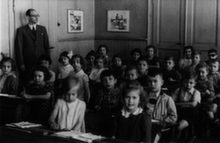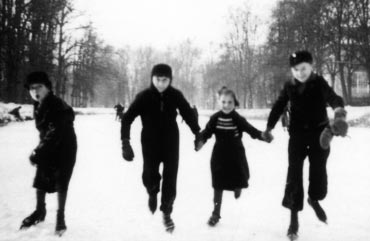Dorrith M. Sim
Dorrith was born in Kassel, Germany. She witnessed Kristallnacht, when her own home was vandalised, so her parents decided she should go to Britain on the Kindertransport. She describes how she taught herself English by saying everything was “in my pocket” and wrote a children’s book with that name on the experience of being a… Continue Reading Dorrith M. Sim


